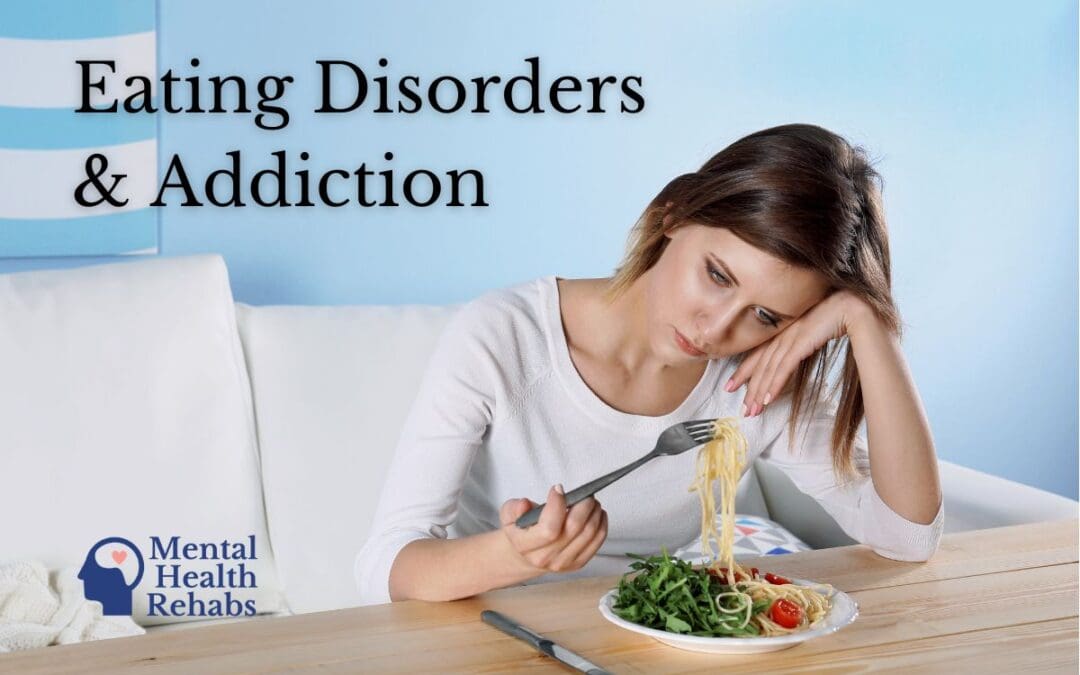Ever found yourself mindlessly munching on snacks even when you know you’re not hungry, or struggling to stop yourself from eating when you started feeling full five bites ago? For some, this is a temporary lapse in judgment, but for others, this dysfunctional relationship with food is something seemingly out of their control. Logically, they understand the health risks and consequences of obesity and how a person becomes obese (eating too many calories = weight gain), but they just can’t seem to stop.
Society can be quick to diagnose someone who overeats as having a lack of willpower or some other sort of moral failing. The truth is, the actual cause could be a medical diagnosis. Science continues to show that foods can have qualities that make them addictive, similar to the likes of drugs and alcohol. In fact, there are several meaningful similarities between eating disorders and addiction.
Is Food Addiction a Real Addiction?
Food addiction is defined as “hedonic eating behavior involving the consumption of highly palatable foods (ie, foods high in salt, fat, and sugar) in quantities beyond homeostatic energy requirements”. Although not listed in the DSM as an official disorder, the concept became popularized in mainstream culture as a result of rising concern about the obesity epidemic, first declared by the World Health Organization in 2003.
A growing body of research has found notable similarities between the two conditions such as
- The experience of cravings
- Reduced control over intake
- Increased impulsivity
- Altered reward-sensitivity
Looking at eating disorders like food addiction through a similar lens as substance abuse, allows us to look at a condition interwoven with socially charged topics (weight loss, thinness, and fatness) through a more objective and sympathetic perspective.
Similarities Between Eating Disorders and Addiction
Eating disorders and addiction are both complex and multifactorial disorders. Both involve alterations in brain chemistry, behavior, and environmental factors. While they have different clinical presentations and diagnostic criteria, they share many similarities in terms of their underlying neurobiological mechanisms and psychological processes.
The Role of Dopamine
One of the key features of both eating disorders and addiction is the dysregulation of reward processing and motivation. The brain’s reward system is primarily operated by the neurotransmitter called dopamine. When a person experiences something pleasurable, such as food, drugs, or other stimuli, dopamine is released and makes us feel good. This reinforces that behavior and makes us more inclined to repeat that action.
In individuals with eating disorders or addiction, this system may be overactive, leading to compulsive behaviors and persistent cravings for the rewarding stimulus. Research has shown that individuals with eating disorders have alterations in dopamine signaling, including decreased D2 receptor availability in the striatum, a key region of the brain involved in reward processing.
Similarly, individuals with drug addiction have been shown to have decreased D2 receptor availability, as well as increased dopamine release in response to drug use.
Other Neurochemical Imbalances
Other neurotransmitters and neuromodulators have also been shown to correspond to both eating disorders and drug addiction.
Serotonin imbalances have been linked to mood disturbances and impulse control issues seen in individuals with both anorexia nervosa and bulimia nervosa. Similarly, norepinephrine and GABA have been shown to play a role in drug-seeking behavior and the development of tolerance to addictive substances.
Risk Factors
In addition to shared neurochemical pathways, eating disorders and addiction also have overlapping risk factors such as genetic predisposition, environmental stressors, and trauma.
Many individuals with eating disorders have a family history of addiction or other mental health disorders, suggesting a common genetic vulnerability. Environmental factors, such as childhood abuse or neglect, which can directly lead to the development of mental illness, can also increase the risk of developing both disorders.
Treatment
Given these similarities, it is not surprising that the methods for treating eating disorders and addiction overlap and that the same methods are likely going to fail (quitting cold turkey is never a good idea). In either case, professional treatment is recommended and offers the highest chance of success.
Cognitive-behavioral therapy (CBT) and dialectical behavior therapy (DBT), which is well-known as a popular therapy treatment for substance abuse, are also highly effective in treating eating disorders as well. Both methods target maladaptive thoughts and behaviors and promote coping skills and emotion regulation. Medications that target specific neurotransmitters, such as selective serotonin reuptake inhibitors (SSRIs) or naltrexone, may also be used in both disorders to modulate reward processing and reduce cravings.
If you are displaying food addiction, another type of eating disorder, or substance abuse behaviors, talk to a mental health professional near you, today.

